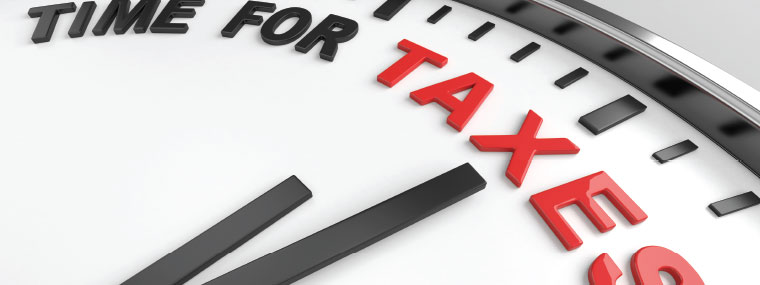
Form 1120H: The Holy Grail to Association Taxes or Not
by Bernie Mapili, CPA, MST / Published February 2015

It’s officially tax time, everyone! Get that box of receipts, get out that checkbook, and send Uncle Sam his money to pay down the National Debt… well, I wish, right? Anyway, as an association nothing sounds better than the opportunity to save tax money. Even better, the word on the street is there is this magical tax form that somehow by filling it out an association will never ever owe any taxes! Say what? If it’s too good to be true, it’s probably not true. But, please, Mr. Author, if there is any truth to it, please tell me! As Jerry McGuire’s client would say, “show me the money!”
WHAT IS FORM 1120H?
First and foremost, Form 1120H is pretty amazing. Overall, it creates thepotential for zero tax liability and is a tax form specifically designed to be used by condominium and homeowner associations. Thank you, IRS lawmakers! Without its creation, associations would fall in an awkward placebetween a legit profit-focused corporation and a non-profit group of people volunteering together. Those volunteers are a civil organization trying to create a legitimate economy of scale to overall improve their home ownership experience. The fact that the IRS allows it to exist is a miracle. But, as we all know, the IRS is hardly a genie in a lamp. So, what’s the catch?
INTO THE BRAIN OF THE IRS
Oh no, the Internal Revenue Service. Martin Scorsese, Al Pacino, Nicolas Cage, Willie Nelson, and Martha Stewart are some famous folks who are millions deep in back taxes owed to the IRS. Are you next? Well, this is where more praise of the IRS kicks in. I’ll save the origination story for another time, but at the end of the day, the IRS has a big heart for associations. They really connect and affirm that the sole purpose of associations is for the “not-for-profit” benefit of the involved homeowners. As long as associations truly focus on simply maintaining their neighborhoods, raising property values, and/or running a “no-profit” business of the minimum services needed, then you are fulfilling the overall purpose of Form 1120H for your association. On the flip side, if you are somehow ending the year with a profit, have units for rent, or generally feel like you are running a very profitable association, then chances are you are not operating with the intent of the IRS.
SHOW ME THE MONEY
So, at the end of the day, where are all of the magical savings? It boils down to a revenue exemption of fantastic proportions. Basically if the money comes in a way that every association member pays the same price and the money is spent on purposes directly for the betterment of the association, then you pay no tax! Put in simpler terms (although don’t rely on this as it’s for illustration purposes), if you and your neighbors gather your funds together into a legitimately created corporation, then even if you amass $1,000,000 and spend $1,000,000 on association needs, the IRS will not take a cut of the action. It’s a dream come true, but keep that nose clean! No funny business, you are warned!
WHAT DO I OWE?
However, Form 1120H has its consequences. If you are an association that receives money from sources other than members, then you need to understand that it is taxable. Do you have association-rented units where the rentees pay the association rent? All of it is taxable, even the portion used to pay down dues or collected from arrears. Associations need constant legal advice, but do not listen to lawyers or anyone else who tell you rent payments are not taxable.
It’s bad advice. Do you have bank interest? That is also taxable. Do you charge anyone, including members, a special, exclusive use fee to rent out the clubhouse for weddings, birthday parties, or do you collect laundry income, etc.? All of that is taxable and should be coded to a dedicated account number so that you can track how much you owe to Uncle Sam.
HOW MUCH WILL WE OWE?
The good news is that any expense directly related to the taxable revenues generated above can be claimed as a deduction. It not only makes common sense, but it should be mandatory for accounting that you code related expense activity to account numbers dedicated to the related revenue activity. Please follow the advice of coding IRS taxable activity separately from the regular, nontaxable activity. The IRS is not about being timely; they are about catching errors somewhere within six years or less. If you are making the mistake today as you read this article, you have six years of prior history possibly at a minimum. Sometimes the tax is not what really gets you. It’s the interest and penalties accumulated over the past six years that digs you in a hole. All of those celebrities mentioned earlier settled their matters up to five years after the fact. The IRS does not waive time! Remember that.
IN CONCLUSION
Form 1120H is a great tax form to keep the IRS content while safely minimizing the tax liability. There are other options, tax forms, and state matters if you have excessive external income such as nonresidential members or generally doing things outside of the norm. But, for the remaining 95 percent of the condominium and homeowner associations in Florida, this tax form should serve you well! Have a great 2015!

